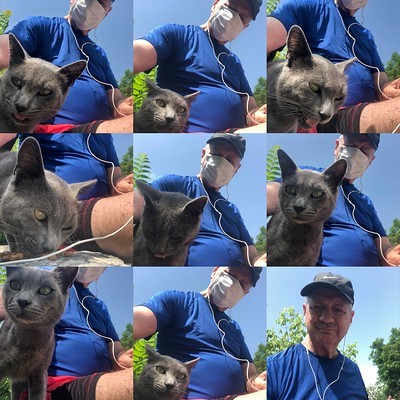| Research Cycle |
Order Jamie's books online with Paypal or a credit card
|
|
|
|
|
 Glory days,
by Jamie McKenzie |
|
As Springsteen points out in his 1984 song, some folks never taste a glory day, while others only enjoy them while stars of some sort in high school. As I write this article, Bruce at the age of 74 has put his incredibly successful tour on hold while recovering from peptic ulcers, but in his first USA tour since 2016 he had been delighting audiences, still tasting glory days even at his advanced age. We can all hope he will enjoy a speedy recovery and be back on the road during 2024. Some 39 years after asking his questions, Bruce has certainly shown us all that it may be possible to keep on rocking well into the latest years of life, that glories may be available to those with grit, grace and talent of some kind even as they reach their twilight years. A different kind of gloryFor the purpose of this article, we will define "glory days" as those that one tastes while performing at some transcendent level, whether it be a hospice nurse guiding a cancer patient and her family through the final days and hours of life, a teacher inspiring young ones to dream big and well, a librarian kindling a love of reading, a carpenter creating extraordinary wooden furniture or a rock star like Springsteen touching the hearts and souls of millions.I suspect Springsteen was toying with a different definition of "glory" back when he wrote the song -- the kind of glory we associate with stars of some kind as opposed to everyday heroes like fire fighters, nurses and teachers. (See "The path of the everyday hero" by Catford and Ray) But those who lead a life of service to others or perform creative work may enjoy a deep and fulfilling form of glory that endures even after the house lights dim and the audience files out into the evening.  © iStock From sharecropping to university presidentIn her outstanding memoir showing how she was able to become president of Smith College, Brown University and Prairie View A&M University despite her birth to a sharecropping family in East Texas in 1945 (Up Home: One Girl's Journey) Ruth Simmons repeatedly mentions the crucial role played by a number of teachers in helping her to escape the limited expectations imposed on young black women and men in the segregated world into which she was born.Surely, these were glory days for those teachers, made even more precious when these same teachers were invited to graduations and other ceremonies during which Simmons always mentioned their importance. They were rock stars of a different kind than those envisioned by Springsteen's song. 
I was born to be someone else, someone, that is, whose life is defined principally by race, segregation, and poverty. That, in the end, I did not become the person I was born to be still, at times, confuses and perplexes me. The Roar Of The Greasepaint – The Smell Of The CrowdFew of us can hope to experience the thrill of 55,000 fans cheering us on as they might for Taylor Swift or the Boss, but other kinds of glories are available if we choose to taste them and recognize their magic in our daily lives.While I have personally enjoyed speaking to some large groups at conferences, I have found a more subtle kind of glory available to me on a continuing basis. Sitting with my guitar and a dozen students outside in the playground at recess as an elementary principal back in the 1980s brought me a deep satisfaction. This same feeling was amplified when the entire school sang folk songs like Wood Guthrie's "This land is your land" together. But another source of glory back then was meeting with a dozen students on a Saturday morning to support their dreams as young poets. My own poem read by the most people, "Standing Tall" -- a tribute to Dr. King -- written in 1982, has brought me great satisfaction when a teacher or student will send me a video recording of their performing the poem.  Kamani and Kweisi Satterwhite read the poem “Standing Tall” by Jamie McKenzie during the Martin Luther King Jr. observance luncheon Jan. 20, at Incirlik Air Base, Turkey. The annual luncheon celebrated the work of Martin Luther King Jr. with a slideshow, song performances, and a speech highlighting his life and work. Source It turns out that glories are abundantly available to all of us if we seek them.
During the pandemic while living in Bulgaria, Romania and Turkey, I fed some 50 street cats on my daily morning runs. While this might seem less magical than performing in front of a thousand teachers at a conference, it brought me great satisfaction and pleasure -- certainly one of the most glorious experiences of my life as COVID raged here, there and everywhere. 
|
FNO Press is applying for formal copyright registration for articles.
Unauthorized abridgements are illegal.

